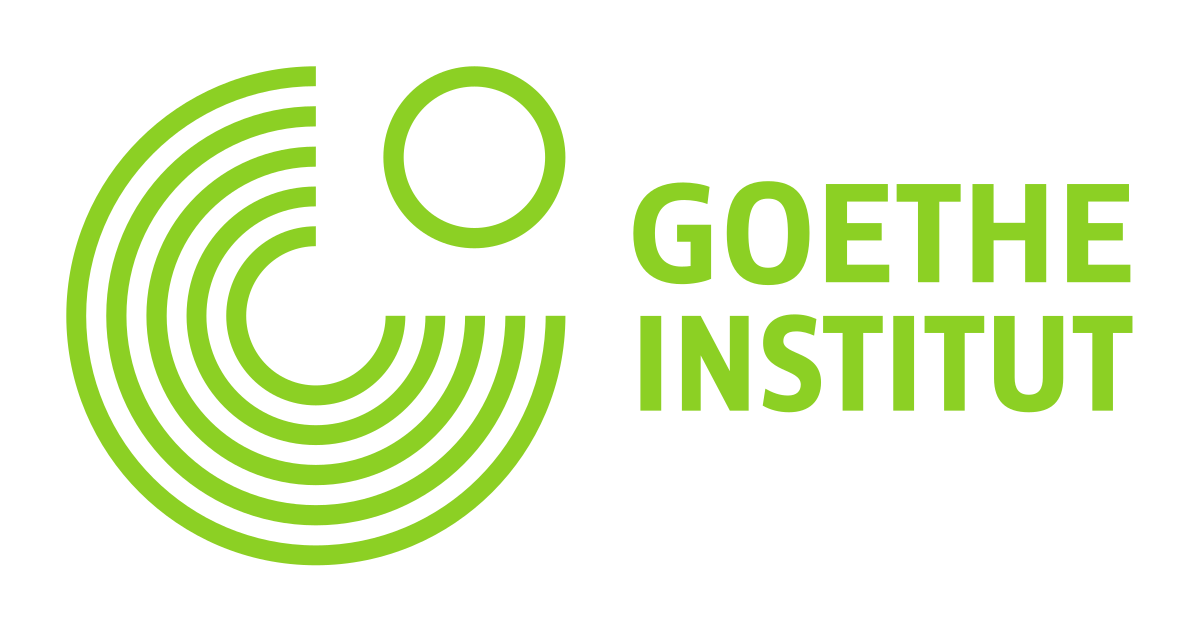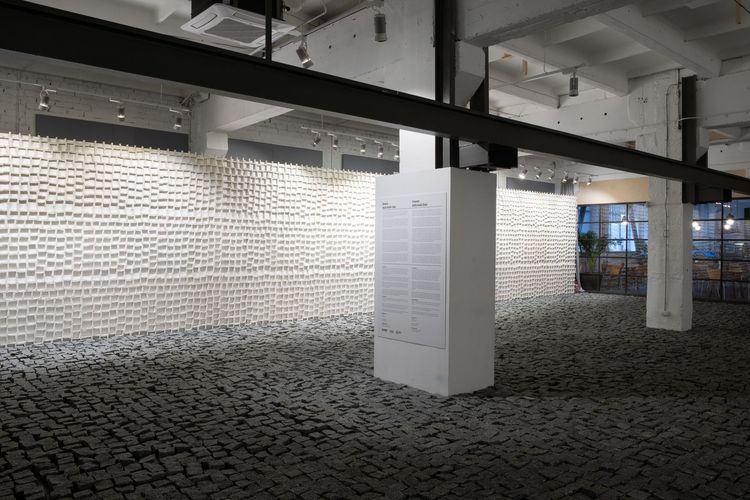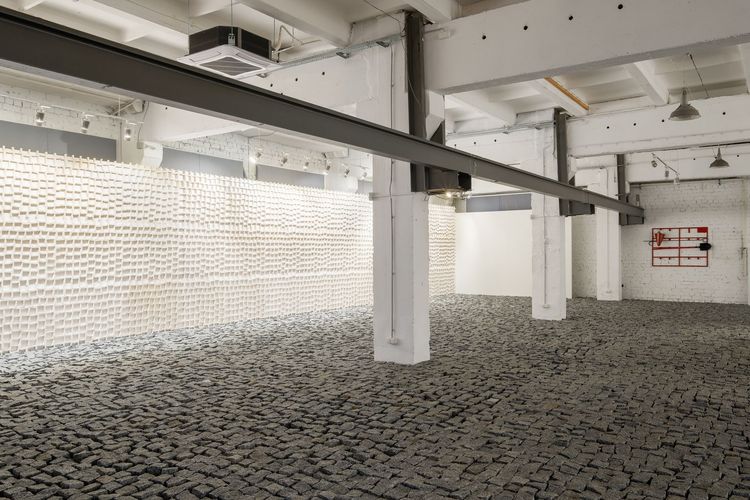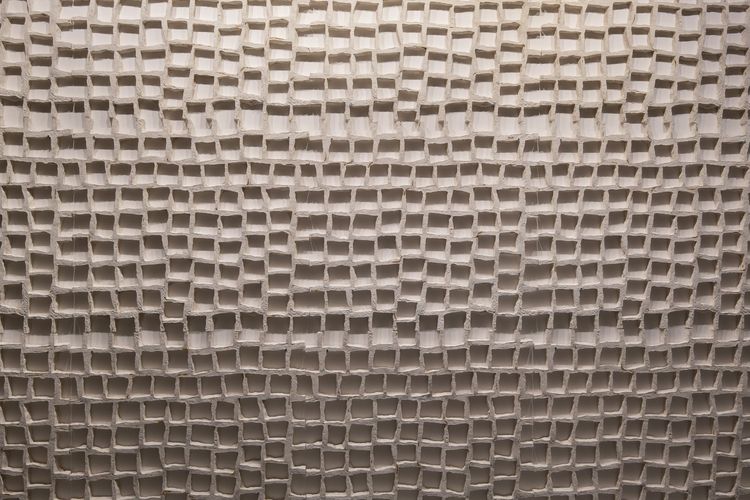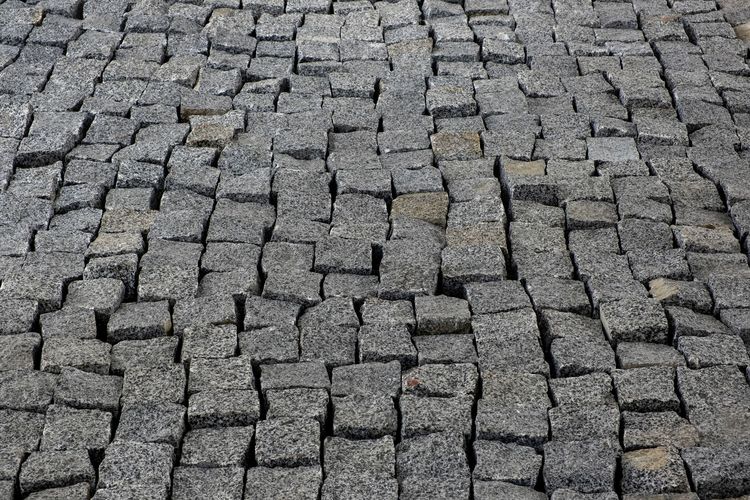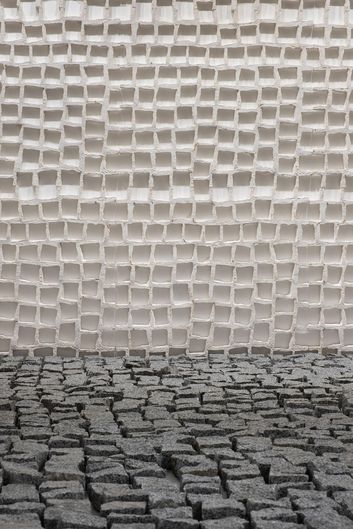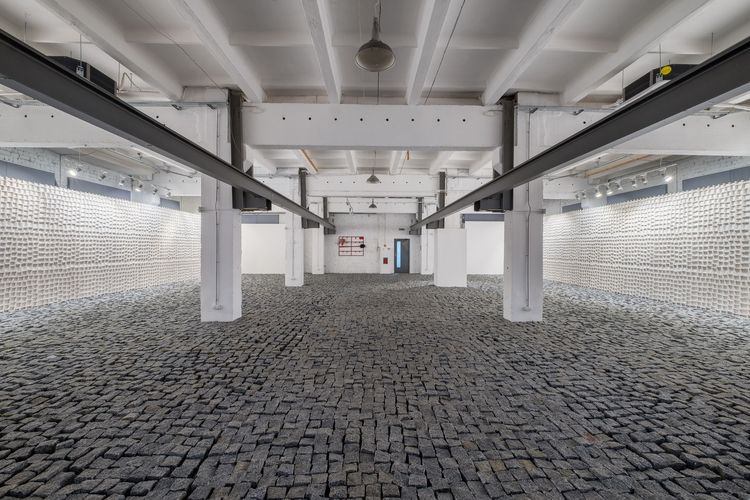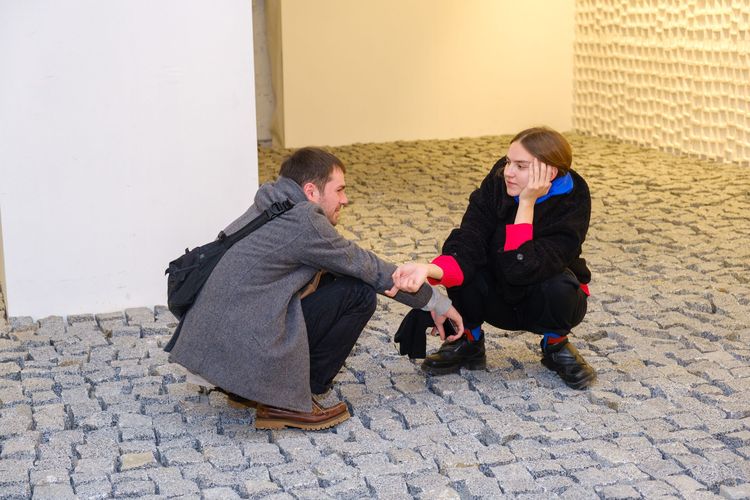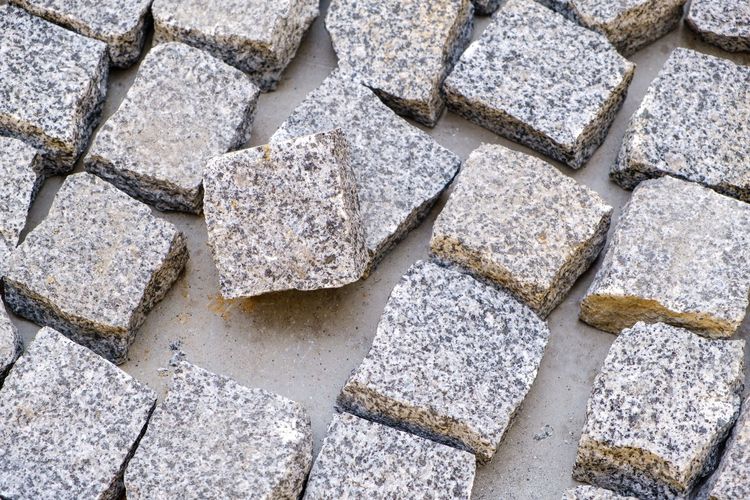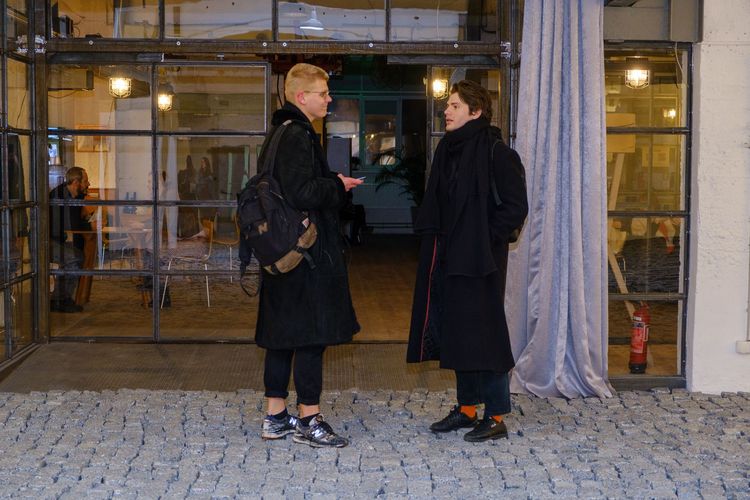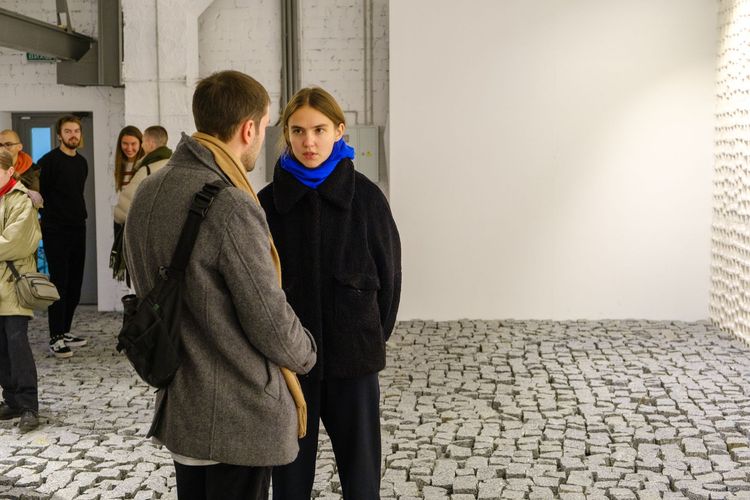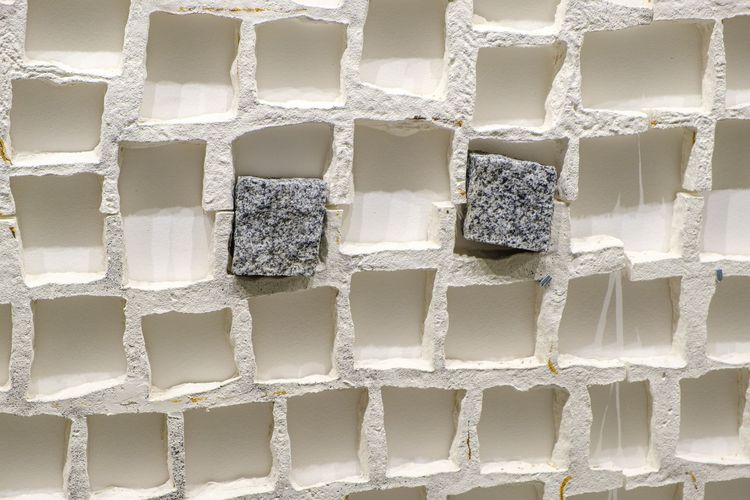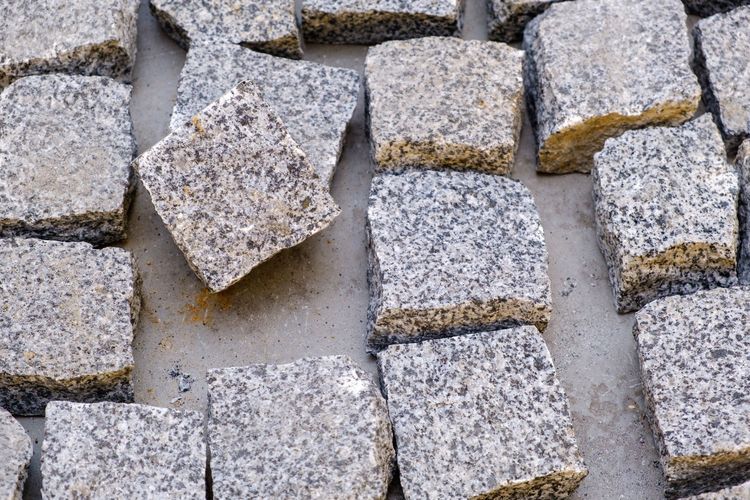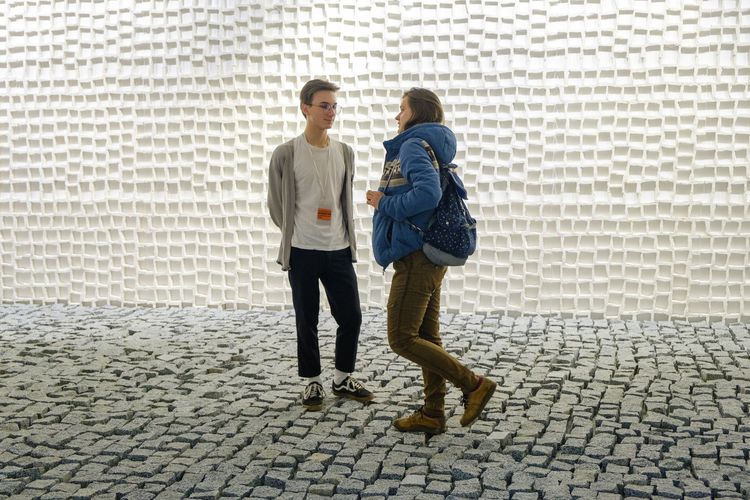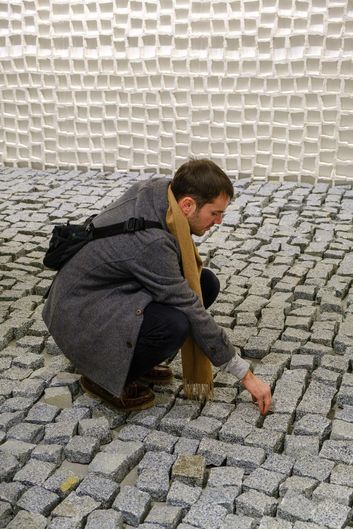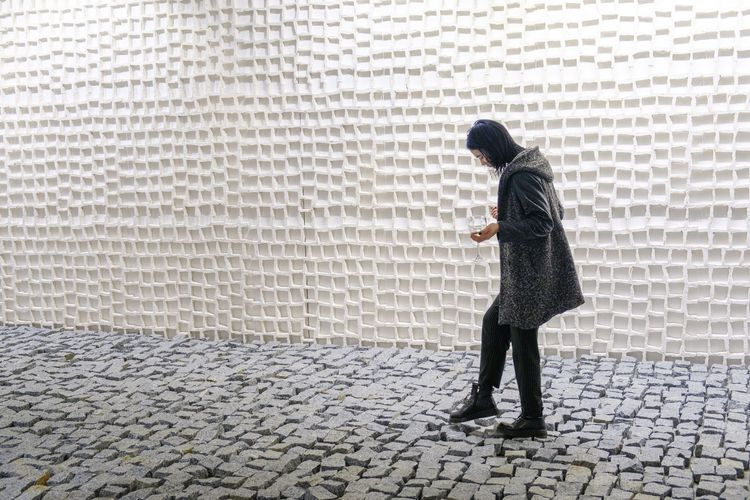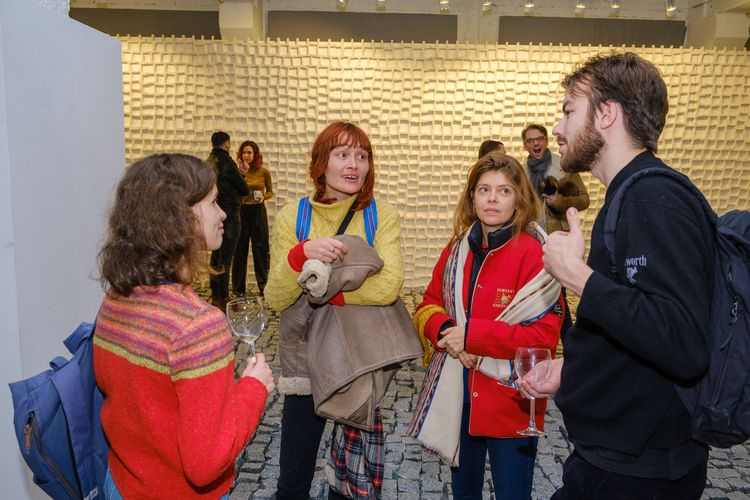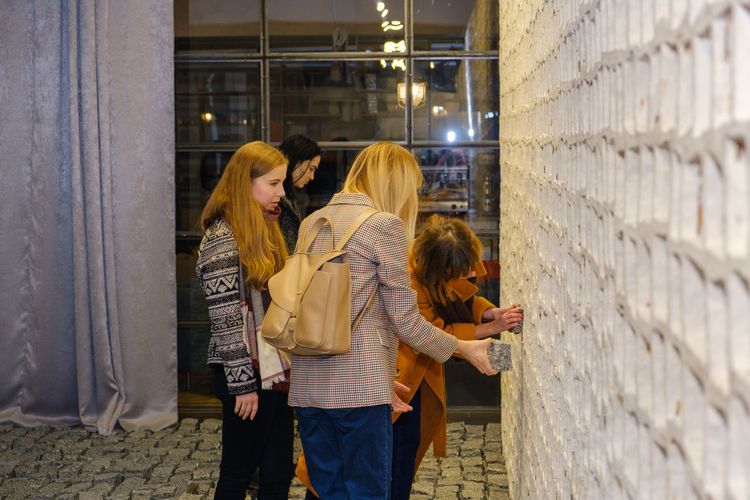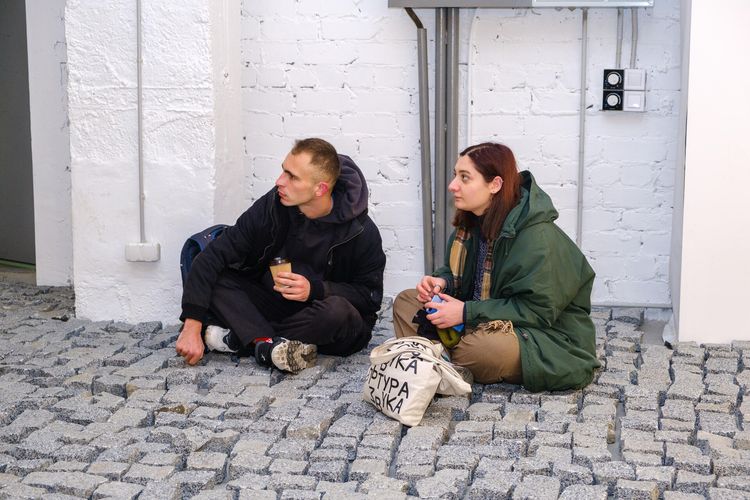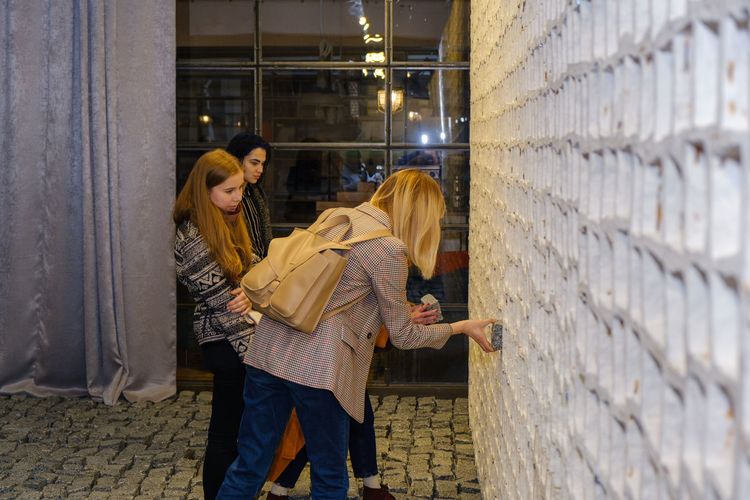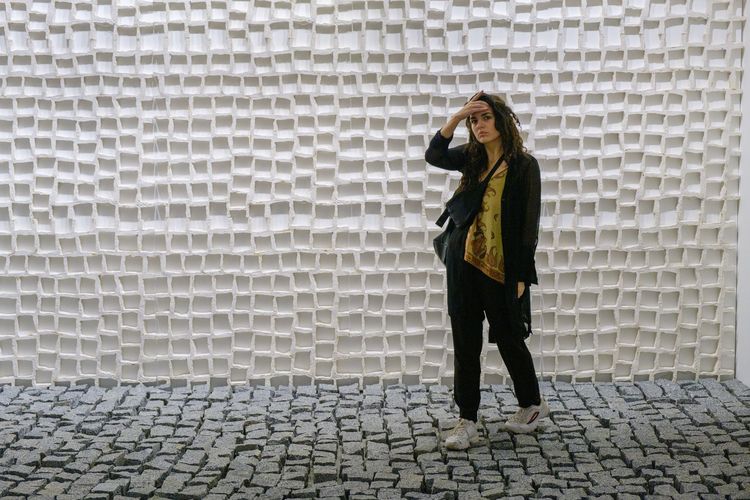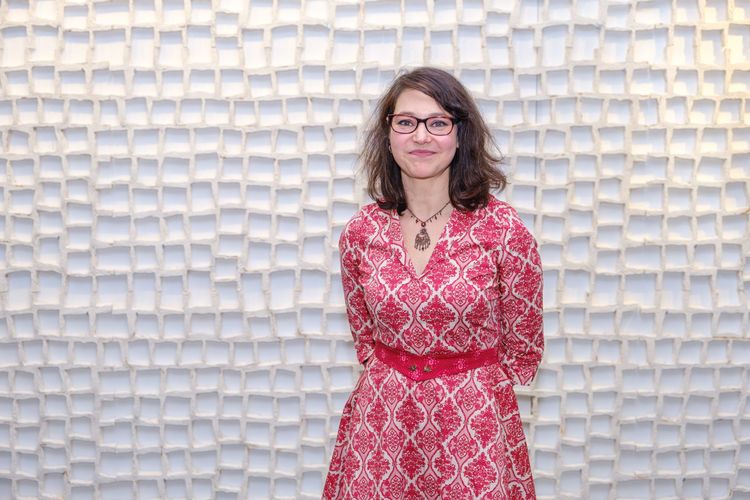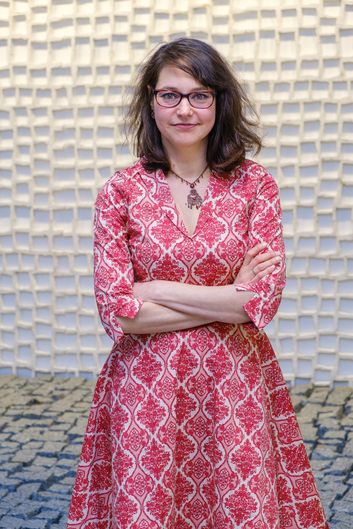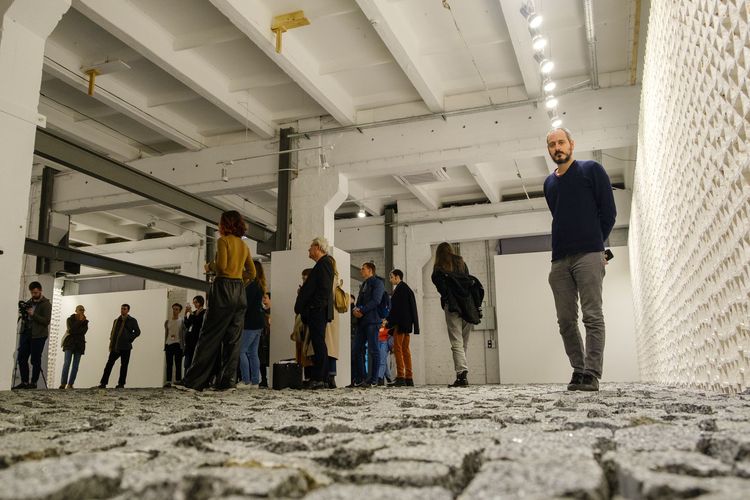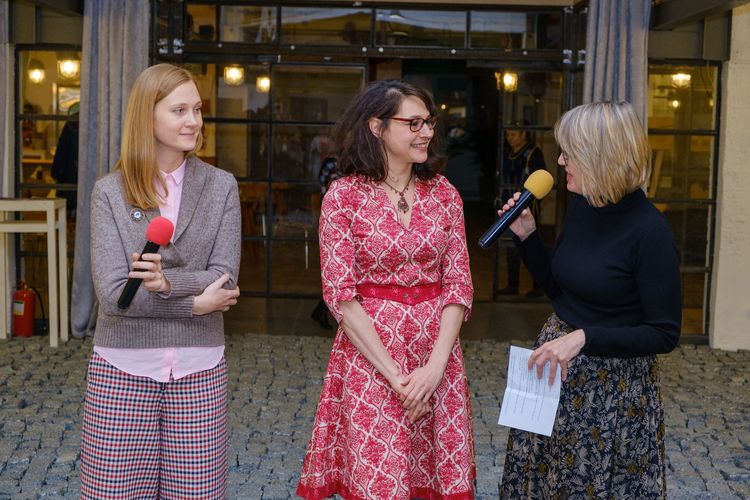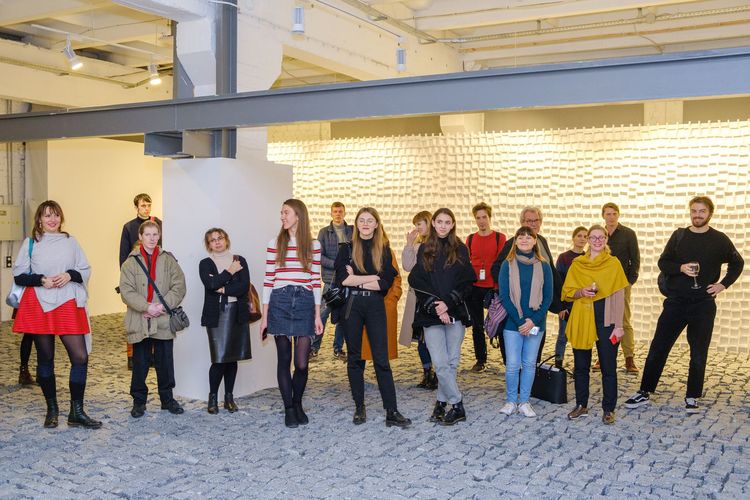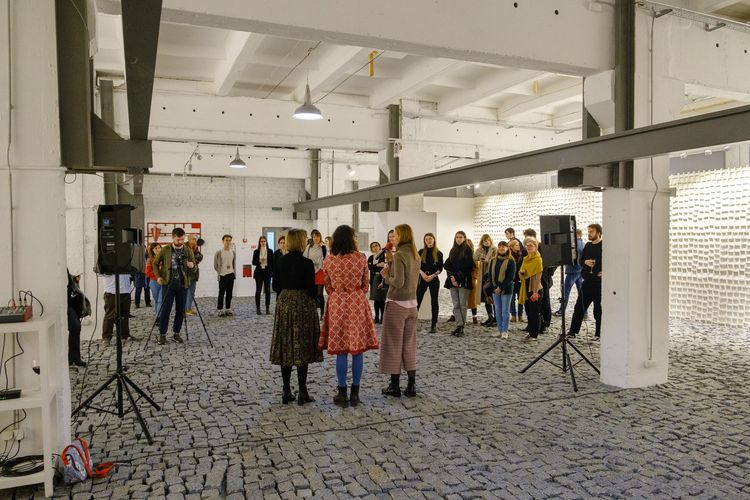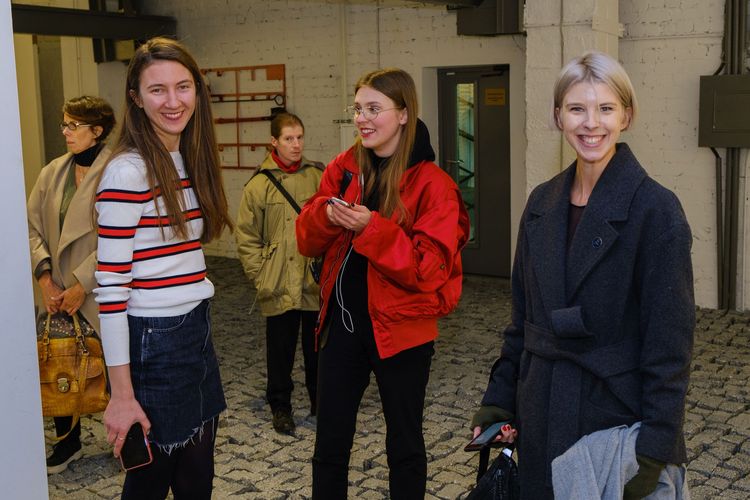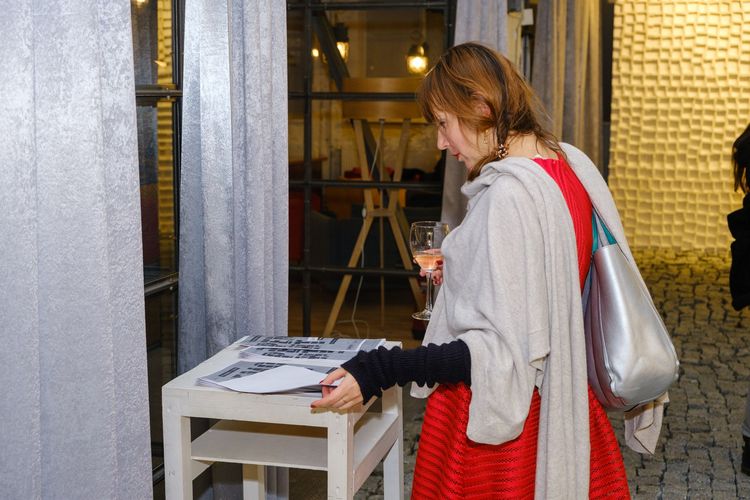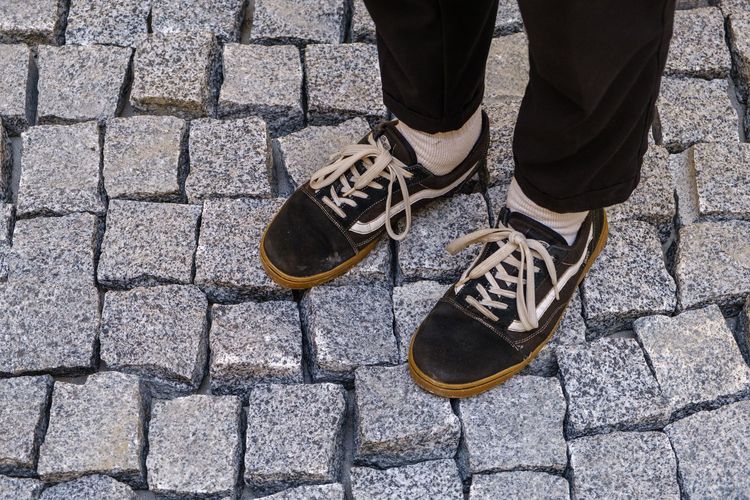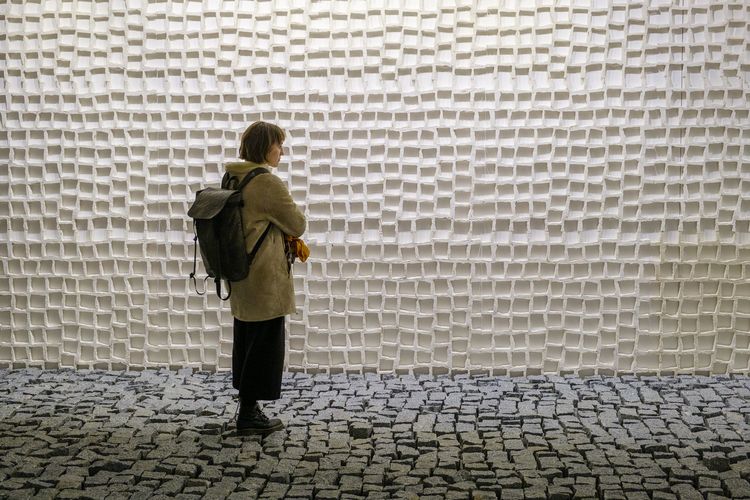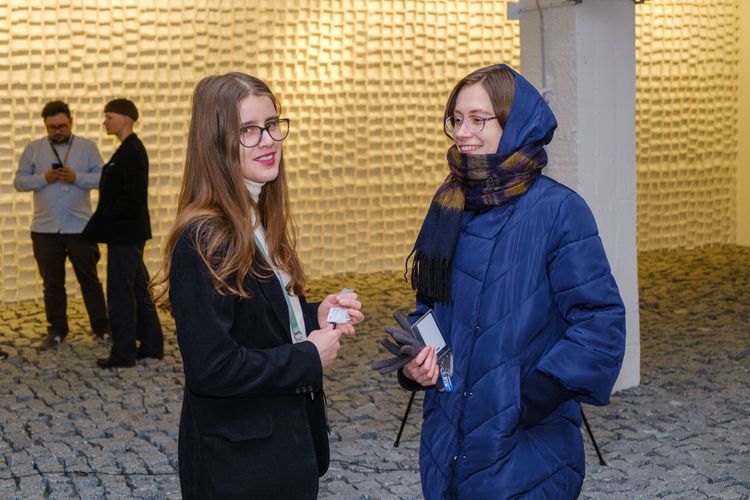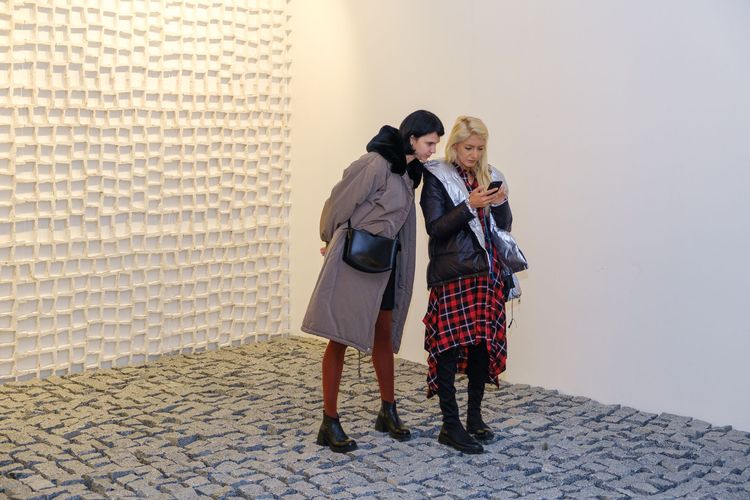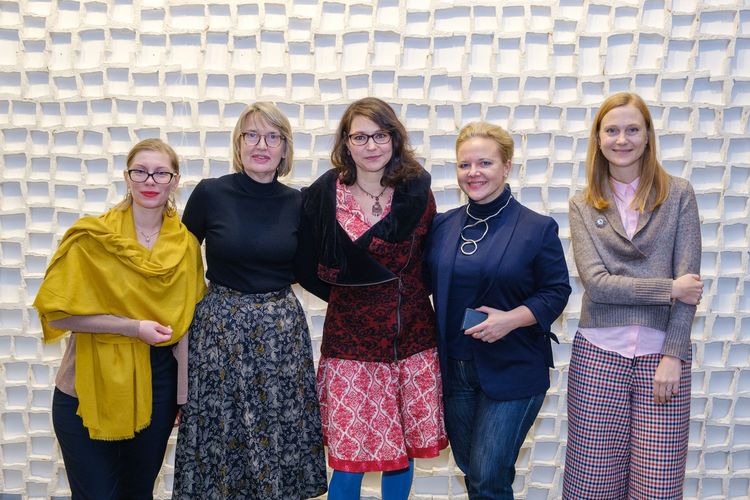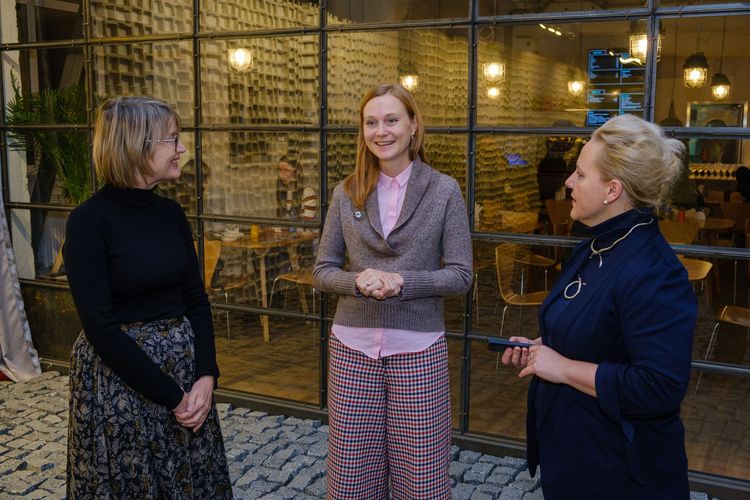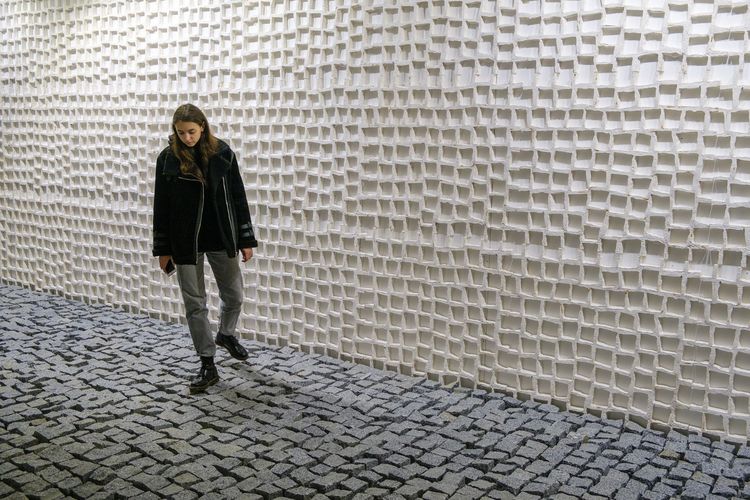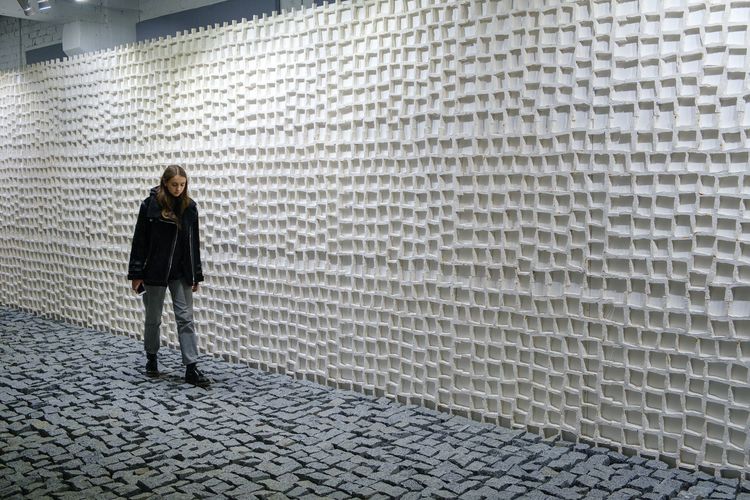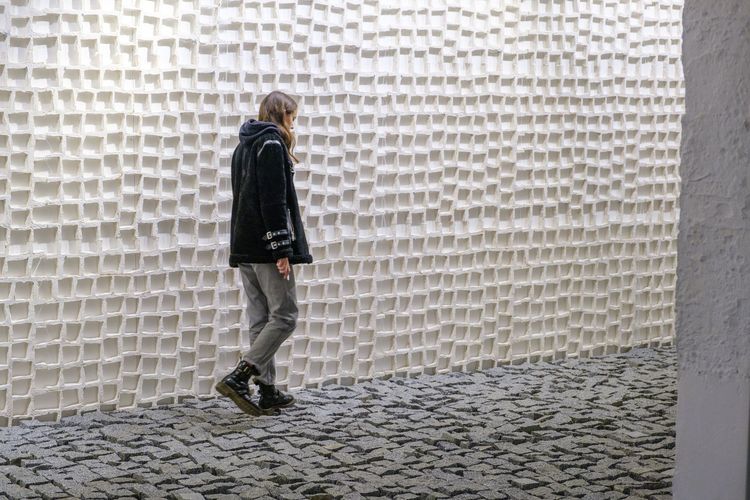Remont: Nadia Kaabi-Linke
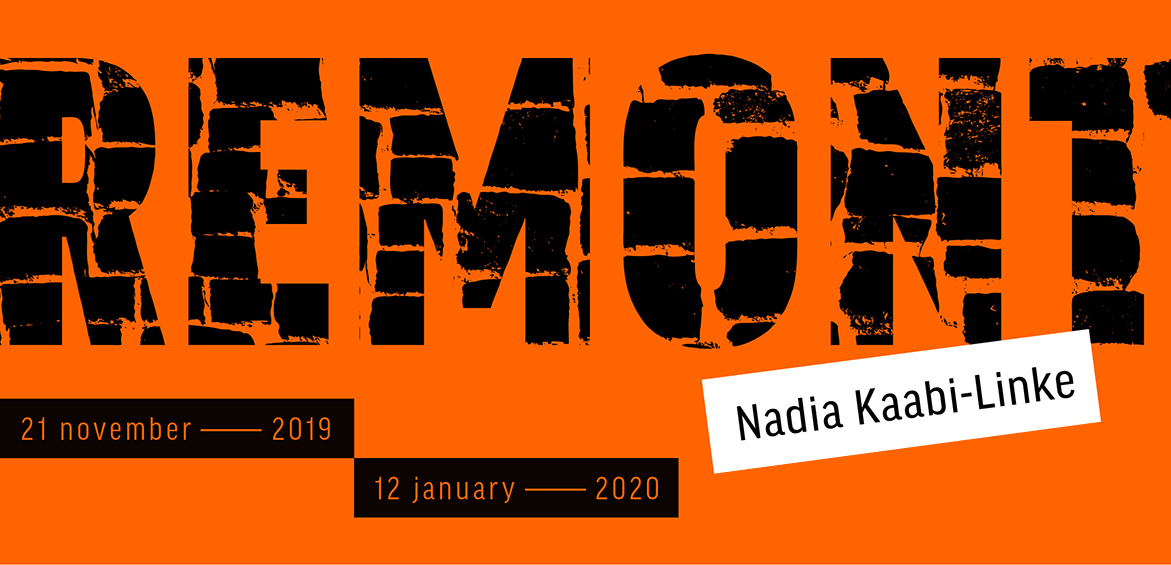
On November 21, 2019, IZOLYATSIA presents Remont, a site-specific installation by renowned Tunis-born artist of Ukrainian origin Nadia Kaabi-Linke at the IZONE Creative Community. The interactive installation is made for the IZONE exhibition space on the second floor, transforming it into a transit zone that connects the stairway and the cafeteria. Usually, the exhibition space is the opposite of a passage, functioning as a site for reflection and spending time whereas in this case its function is intentionally subverted.
The Ukrainian word ‘remont’ can be humbly translated into English as renovation or maintenance, however, the nuanced meanings slip away in the act of translation. Accordingly, remont can better be described as a long-term, ongoing or even never-ending process of keeping together that which threatens to decay, usually infrastructure. Remont initiatives are stereotypically mismanaged, chaotic, low-quality. They are often carried out by the very same inhabitants of the building who by no means have professional skills.
Taken as a metaphor that best describes the current state of affairs in the world, Kaabi-Linke’s Remont consists of natural paving stones loosely laid out on the floor and missing grout between the stones on the walls. The latter creates filigrane, yet minimalist relief embracing the passage of the exhibition space. The missing mortar between the stones will cause a wobbling and noisy ground once someone is walking on it. The simple act of walking and moving forward is uprooted by an underlying feeling of insecurity. The noise produced with each new step echoes the public discourses and debates seeking solutions to economic, political, environmental, social, etc. problems. The question of whether the problem and solution will pair goes unanswered.
Kaabi-Linke’s hints at the notion that instability and viral uncertainty is a new normal in our contemporary moment. The fear of loss in material wealth, prestige, esteem and influence overpowers the facts appear incompatible.
Yet despite perennial anxiety of social and economic decline, one grows accustomed to the imbalanced distribution of wealth. The environmental effects of capitalism commodifying all aspects of human activity are well established, and yet there is still no seismic shift in socio-political understanding in sight. Kaabi-Linke’s installation thus becomes a metaphor for this kind of collective indifference to any necessity of change.
The installation simultaneously provides a subtle, probing take on the extremely complex geopolitical situation of the country. In recent years, Ukraine has fought not only for its integrity but for political freedoms, representation and democracy. In light of the ascension of a new Presidential administration and the introduction of hundreds of fresh faces to the Parliament, it remains uncertain whether the country will succeed in transcending its history of corruption, manage to shake old sources of instability, or go in the Russian direction.
About the artist:
Nadia Kaabi-Linke was born in Tunis, Tunisia to a Ukrainian mother and Tunisian father. She graduated from the University of Fine Arts, Tunis, in 1999, and earned a Ph.D. at Université Panthéon-Sorbonne Paris, in Art and Sciences of Art in 2008. Growing up between Tunis, Kyiv, and Dubai, residing in Berlin and Kyiv, Kaabi-Linke has a personal history of migration across cultures and borders that has greatly influenced her work.
Her works give physical presence to that which tends to remain invisible, be it people, structures, or the geopolitical forces that shape them.
She had institutional solo exhibitions at Calouste Gulbenkian Museum in Lisbon in 2013, Dallas Contemporary in 2015, Kunstmuseum Bonn in 2017 among others.
Her works have been exhibited in numerous group exhibition among which Nam June Paik Art Center, Seoul (2013); Museum of Modern Art, New York (2013); Louisiana Museum of Modern Art, Humlebæk, Denmark (2014); Solomon R. Guggenheim Museum, New York (2016), Dallas Museum, Dallas (2018); Martin Gropius Bau, Berlin (2019).
Нer work is part of major public collections like Centre Georges Pompidou, Paris; Solomon R. Guggenheim Collection, New York; Museum of Modern Art Collection, New York; M+ Museum, Hong Kong; Sharjah Art Foundation, UAE; among others. She participated in the Sharjah Biennial (2009); Venice Biennale (2011); Liverpool Biennial and Kochi-Muziris Biennial (2012), and Lahore Biennale and Karachi Biennale (2018).
Exhibition Details:
Curator: Kateryna Filyuk
Project Manager: Natasha Andrieieva
Exhibition opening:
21 November, 2019; 7 PM
Venue:
IZONE Creative Community; Floor Two
Naberezhno-Luhova, 8 (Kyiv, Ukraine)
Exhibition schedule:
22 November –12 January, 2020
Monday to Sunday
10 AM – 8 PM
Entry is free
Information partner — The Ukrainian Week:
![]()
This project is supported by Goethe-Institut Ukraine:
